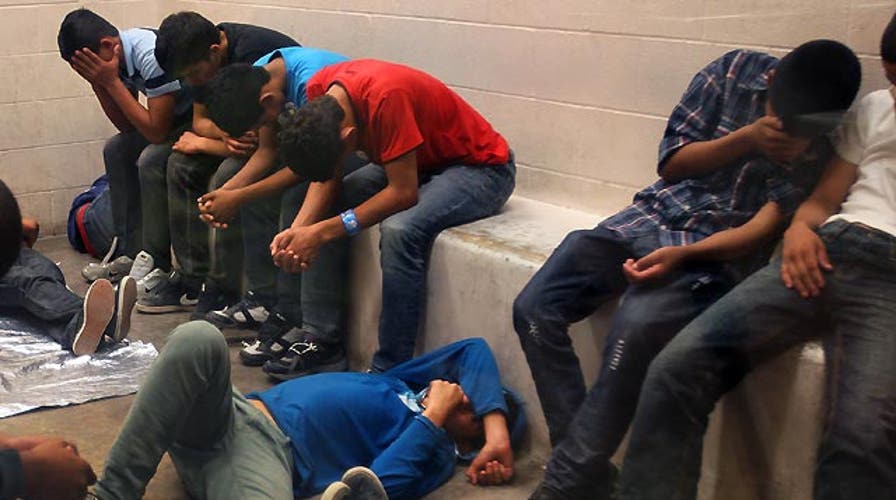This is a rush transcript from "Your World," April 8, 2015. This copy may not be in its final form and may be updated.
CHARLES PAYNE, GUEST HOST: Meanwhile, a Texas judge denying the government's request to reverse his decision on stopping the president's executive order on immigration, saying that the Justice Department was misleading in its case.
To Texas Attorney General Ken Paxton.
From what I understand, 26 states all went in on this, all hoping that perhaps there would be a reversal. So, if you can explain for the audience the judge's decision-making process here and what's the next step.
KEN PAXTON, R-TEXAS ATTORNEY GENERAL: So, the Department of Justice was trying to get a stay on the preliminary injunction that we had asked for.
And our preliminary injunction was designed to stop the implementation of the Obama administration's executive action. And that was denied. Our preliminary injunction stays in place. And right now the executive action has been stopped for the time being.
PAYNE: What's the next step then? Obviously, it goes back and forth, back and forth. And I don't think anybody in the federal government is stopping the wheels from moving towards this ultimately being accomplished.
PAXTON: Well, part of this is going to be appealed to the Fifth Circuit. We actually have an argument April 17 regarding the judge's stay.
But there's also issues going on at the district court level. The judge is asking them to submit information on who knew about this information that they didn't disclose. The information they did not disclose is that they had begun implementation without telling the court and without telling us. And so now the judge wants to understand, when did they know and who knew it?
PAYNE: But, ultimately, can you say, OK, the executive orders or executive memos, which are the president's prerogatives, that they can be taken away because they were arrogant, maybe they jumped the gun, is that enough sway to change all of this?
PAXTON: Well, that's not really the argument.
The argument is that the president doesn't have the authority do this. This is outside of his constitutional duty, that this is law in place that he is not tweaking. He is actually changing the law from one thing to another. And only Congress has the authority do that.
PAYNE: Are there members in Congress working with you hand in hand? I thought this was going to be a big deal, particularly after the results of the November election. I really thought this would be ground zero, Congress finally standing up to the president of the United States that they have said is lawless all of this time. And yet it feels like I don't hear a lot about this coming out of there.
PAXTON: Well, we're focused on the court action and what's happening in our state.
And part of the argument we're making is that, outside of what Congress is doing, that the state is being irreparably harmed by these actions. And, of course, this didn't go through Congress.
PAYNE: Sure.
PAXTON: There was no debate, no transparency. And it has immerse costs to the state of Texas.
PAYNE: It certainly does.
Ken, thank you very much. We appreciate it.
PAXTON: Thank you.
Content and Programming Copyright 2015 Fox News Network, LLC. ALL RIGHTS RESERVED. Copyright 2015 CQ-Roll Call, Inc. All materials herein are protected by United States copyright law and may not be reproduced, distributed, transmitted, displayed, published or broadcast without the prior written permission of CQ-Roll Call. You may not alter or remove any trademark, copyright or other notice from copies of the content.

